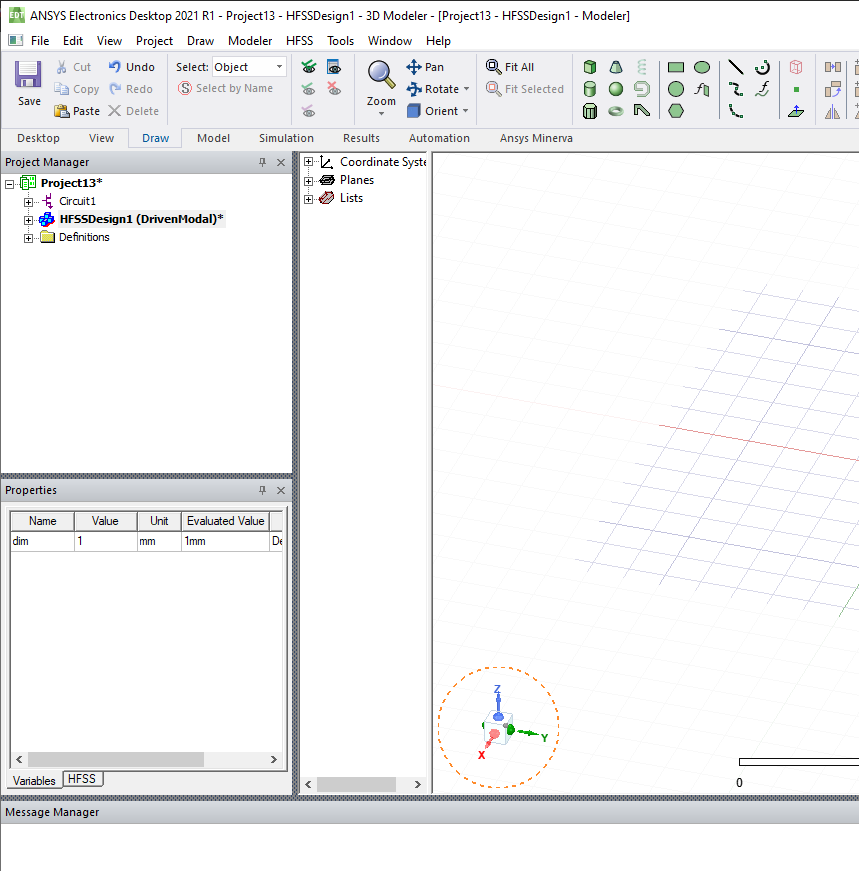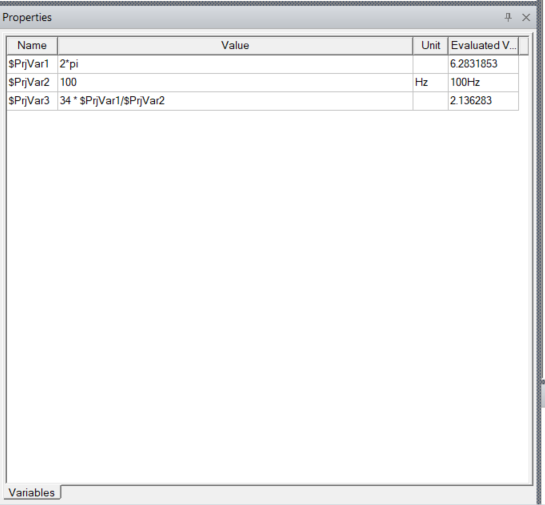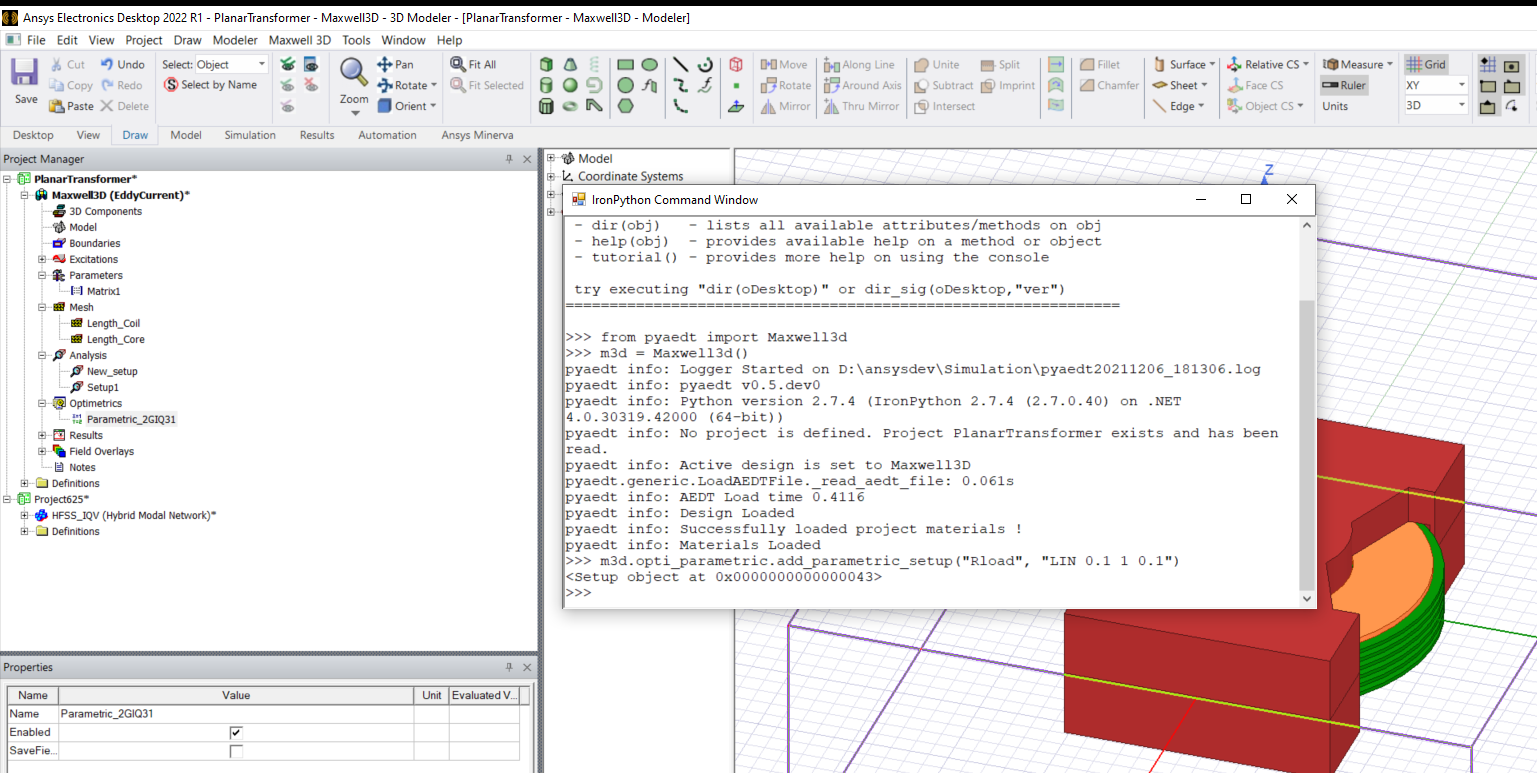Variables#
PyAEDT provides a simplified interface for getting and setting variables inside a project or a design.
You simply need to initialize a variable as a dictionary key. If you use $ as the prefix
for the variable name, a project-wide variable is created:
from ansys.aedt.core import Hfss
with Hfss as hfss:
hfss["dim"] = "1mm" # design variable
hfss["$dim"] = "1mm" # project variable

With Variable Manager, you can create advanced equations and manage them through PyAEDT.
While you can set or get the variable value using the app’s setter and getter, you can
access the variable_manager object for a more comprehensive set of functions:
hfss["$PrjVar1"] = "2*pi"
hfss["$PrjVar2"] = "100Hz"
hfss["$PrjVar3"] = "34 * $PrjVar1/$PrjVar2"
hfss["$PrjVar3"] # 2.13628300444106
hfss.evaluate_expression(hfss["$PrjVar3"]) # 2.13628300444106
hfss.variable_manager["$PrjVar3"].expression = "34 * $PrjVar1/$PrjVar2"

Optimetrics#
Optimetrics allows you to set up parametric analyses, sensitivity analyses, optimization, and design of experiments. PyAEDT provides the capability to seamlessly interact with optimetrics setups by allowing you to read existing configurations, make edits, and create setups:
from ansys.aedt.core import Maxwell3d
m3d = Maxwell3d()
m3d.parametrics.add("Rload", 0.1, 1, 0.1)

Quantity and numbers#
Quantities with units can be managed using the class Quantity.
from ansys.aedt.core.generic.numbers_utils import Quantity
a = Quantity(1, "GHz")
b = a + 1
c = a + "1MHz"
d = a + b
a.unit = "Hz"
e = a.to("MHz")
str(a)
float(a)

